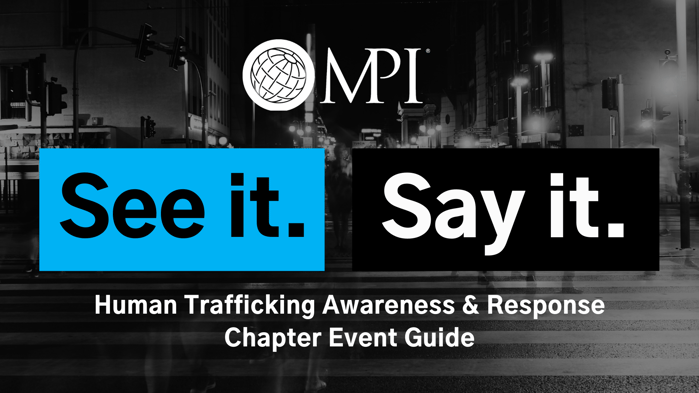Human Trafficking Awareness Month may have taken place in January, but here at Redstory, we’re taking steps to raise awareness about this issue all year long. Human trafficking, also known as modern slavery, happens in all kinds of settings across the globe. However, statistics have shown that large events often bring a marked uptick in this activity. As marketing and event professionals, we believe that the hospitality industry has a responsibility to help put an end to human trafficking however we can, especially when it is known to occur often in our field.
Learn to See the Signs
To effectively combat human trafficking at events, marketing and planning professionals must be aware of the telltale signs that can set off those warning bells that something isn’t right. At Redstory, we’re often responsible for booking venues and vendors, and we take every opportunity to educate ourselves and our event partners to recognize these signs and know exactly what to do if they spot them.
Human trafficking victims can be sold from hotel rooms at large events or transported on airlines or buses, so it’s important to be vigilant whether we’re onsite at an event or simply traveling to and from one. We want our events to be safe for every attendee, as well as in the community where the event is taking place. Here are some red flags to look out for:
- Someone traveling without belongings or luggage
- Someone without any documentation or identification, or offers false age or identification
- Someone who pays only in cash, even for larger purchases like accommodations
- Someone who isn’t dressed appropriately for the event
- Someone who stays in a hotel room that others enter and exit regularly
- Someone who is escorted at all times or led/controlled by another person
- Someone whose answers are so consistent that they feel scripted or rehearsed
Noticing one of these signs is not necessarily indicative of a human trafficking situation, but it certainly warrants a closer look. If you notice this during any event, make sure to be aware of as many details surrounding the situation as possible so that you can provide information to authorities who can help.
Know When and How to Speak Up
If you suspect human trafficking is occurring, it’s important to alert the proper channels as soon as possible to get help for the victim. Rather than approaching the person themselves, we recommend getting in touch with the Human Trafficking Hotline. There are a wide variety of ways to communicate your concerns, from calling 9-1-1 to sending a text or chatting with an agent online.
Be Proactive about Education
Often, it’s easier to prevent human trafficking before it starts than it is to stop it. Consider adopting these tips in your future event planning:
- Train your team, venue staff, and vendors how to spot the human trafficking indicators listed above, and provide everyone with information on how to report concerns ahead of the event.
- Include a policy in your contracts that clearly states your zero tolerance position on human trafficking at your events, letting your supply chain know that you will take action if you suspect this is occurring.
- Elevate awareness during your events with your clients and attendees. This can be done by distributing helpful print materials or offering a session on conference agendas for the event audience to educate themselves.
For more ways to help put a stop to human trafficking at upcoming events, follow the guidelines MPI has listed in their See it. Say it. campaign. Together, we can make the hospitality industry a safer place for everyone!
